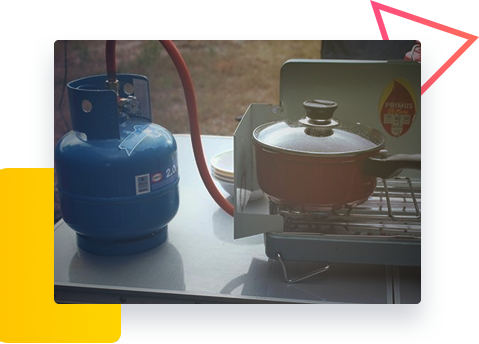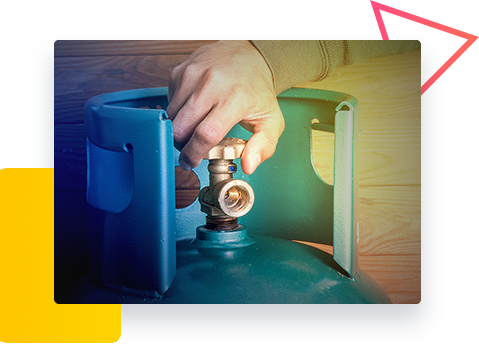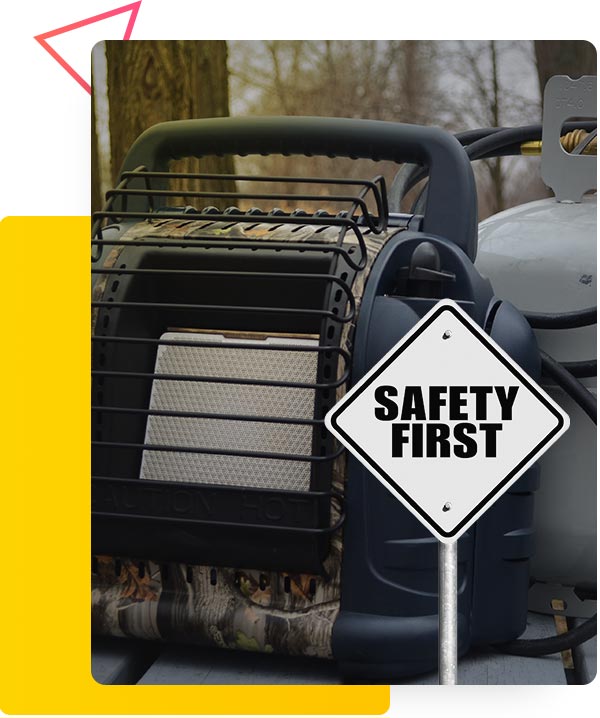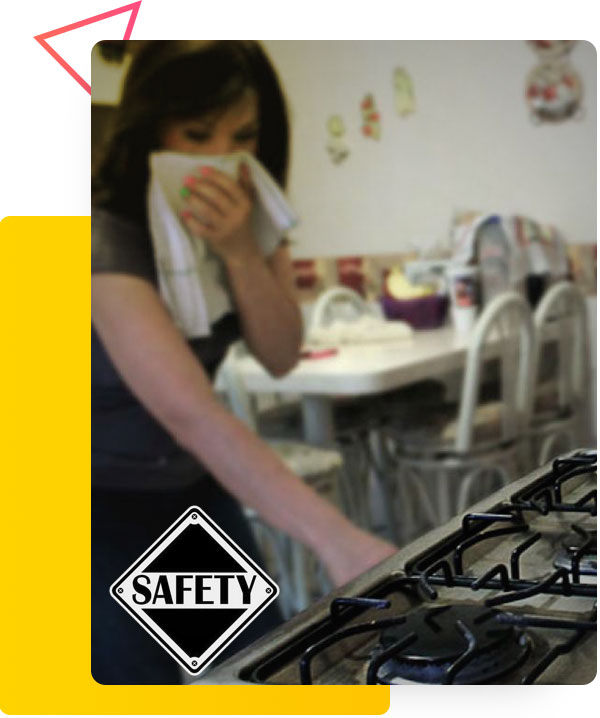LPG Safety
Safe and efficient use of LPG
Properties
LPG is a colourless liquid that evaporates into a gas, and it has an odour added to help detect leaks. It can burn or explode when it mixes with air in the right proportions and finds an ignition source.
LPG is supplied in pressurised cylinders to keep it liquefied. The cylinders are strong and not easily damaged, although the valve at the top can be vulnerable to impact. Leaks can occur from valves and pipe connections if the connections are not kept in good condition or if sufficient care is not taken when changing cylinders.
As long as the cylinder is kept upright any leaks will generally be of LPG vapour. If liquid LPG leaks it can cause cold burns to the skin and rapidly expand to produce a large volume of vapour.
For more safety information go the Gas Safety website.


Basic safety rules
- Ensure all fixed LPG installations are fitted and serviced by a licensed or registered gas fitter. The gasfitter is responsible for ensuring new or replacement appliances are connected, tested and adjusted properly. The gasfitter should explain appliance operating instructions to the consumer and provide them with a copy of either the Certificate of Compliance or a Gas Safety Certificate.
- Keep LPG appliances and fittings in excellent condition and have them regularly serviced. Check the appliance manual or contact the retailer to find out how often this is recommended.
- Do not connect LPG appliances to other gas supply systems.
- Do not use LPG cooking appliances or stoves as room heaters.
- Use only equipment and parts specifically manufactured and approved for LPG. Click here for information on the use of approved valves and cylinder valve outlet configurations.
- Ensure there is adequate ventilation when using LPG – never seal doors, windows or tents for extra warmth while a gas appliance is being operated.
- LPG cylinders must be used and stored in an upright position to avoid LPG liquid escaping.
- Stick to the law: all LPG cylinders are required to be tested every 10 years by an approved cylinder testing station.
- Use only suitable flexible hoses designed for LPG appliances. All LPG hoses sold in New Zealand have the hose specification and the letters LPG written on them. Keep hose gently curved to eliminate kinks and damage.
- LPG installations in caravans, recreational vehicles and boats must comply with AS/NZS 5601.2. Cylinder compartments must be sealed from the interior of vehicles and boats and vented to the outside. Cylinder valves must be closed when a caravan is in transit.
- Never use any gas appliance, including a refrigerator, in a moving vehicle.
- Turn off every LPG appliance in caravans and boats before petrol refuelling.
LPG Cabinet Heater Safety
- Have portable LPG cabinet heaters serviced regularly to ensure all parts are leak free and operating properly. Click here for a list of service agents.
- Keep a clear zone around the heater of at least 1 metre when in use and keep it away from combustible materials such as curtains and furniture.
- Keep children supervised at all times when in a room with an LPG cabinet heater.
- Turn off the heater and cylinder valve at night before you go to bed.
- Keep a window ajar when using the heater to help remove emissions, keep the air fresh and reduce condensation.
- Follow the instructions about the minimum room size in which the heater can be used safely. These are supplied with the heater.
- Make sure you connect the heater regulator to the cylinder valve before turning on the valve, then test the connection for leaks with soapy water. Check the cylinder valve is closed before disconnecting the cylinder.
- Do not use unflued LPG appliances in bedrooms, bathrooms, sleeping annexes, caravans, marine vessels and other mobile vehicles, under any circumstances.


If you smell LPG inside your home
- Keep flames and cigarettes out of the affected room and away from the area
- Turn off all gas appliances
- Turn off the gas supply at the LPG cylinder(s)
- Open doors and windows to ventilate the area
- Leave electrical appliances or switches as they are – a flick on or off can cause a spark
- Don’t use a mobile phone in the area
- Contact your LPG retailer or a licensed gas worker immediately to check the installation
- If the smell persists in the house go outside to a safe place away from the building
Camping Appliances
See the Let it Breathe – Camping Appliance Safety leaflet for information about how to use LPG appropriately when camping.

Peace of mind with dependable fuel supply, when you need it
Our Business is Customer Satisfaction.


